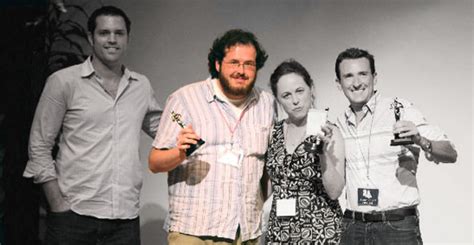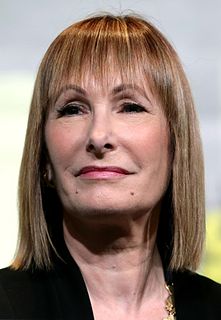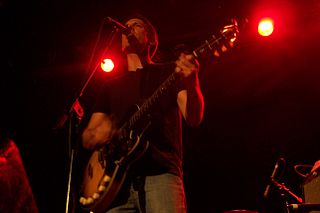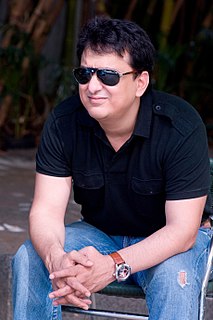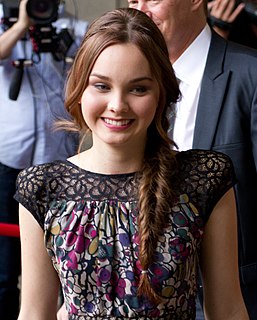A Quote by Robert Eggers
After I made my first short film that wasn't terrible, people were interested in potentially developing a feature with me. Every time I read a script, it was a bizarre, too-dark, genre-less thing that no one wanted to make.
Related Quotes
When you start out as an actor, you read a script thinking of it at its best. But that's not usually the case in general, and usually what you have to do is you have to read a script and think of it at its worst. You read it going, "OK, how bad could this be?" first and foremost. You cannot make a good film out of a bad script. You can make a bad film out of a good script, but you can't make a good film out of a bad script.
There was a time when I first started that there was such a thing called 'a woman's film' and there were certain scripts that women would make. But I think that's changed a lot now. I think that if a woman director walks into a room with a script, it doesn't really matter what the subject matter is, or the genre is, so long as the financers feel that the woman has the skills to make the film.
Well, I think there was a time when I first started that there was such a thing called 'a woman's film' and there were certain scripts that women would make. But I think that's changed a lot now. I think that if a woman director walks into a room with a script, it doesn't really matter what the subject matter is, or the genre is, so long as the financiers feel that the woman has the skills to make the film.
I went back to Dallas for a little while to finish my short film 'Rusty Forkblade.' It was not the instant success I thought it was going to be. There's a false narrative that if you make a short film right after senior year, you'll be plucked out to make a feature length film, and the rest is history. I didn't do that.
The great thing about television is that you get to tell, like with "The Walking Dead", 16 hours worth of character-driven storytelling in less time than it takes to make a feature film. So, it really is a medium at least for storytellers who are passionate about not only the genre but also the character-driven genre stories. It's probably a better medium.
When we first made this whole idea this was going to be calling card film [Moon] and it was going to give the opportunity to make my first feature film. But it turned out a lot better, we just couldn't stop ourselves from going into it, and we are very proud that it turned into something that people wanted to see.
I feel lucky that Viceland wanted to make it, and I'm producing more than one film with LGBT characters and stories and it's because it's what I'm interested in. I'm not going to read a script and say, 'They're not gay, I'm not going to do it,' but I am interested in playing more gay people, because I've only played one gay person, and I've done a fair amount of movies, and I am interested in those stories. So for me, there's no should-I-or-shouldn't-I. It all feels natural.
In our time, we have become too interested in the artist and his or her character and experience as a way of understanding art. In my view, you should be able to read a book or see a film without knowing a single thing about conditions or circumstances or character of the artist, and experience the work to the full without such information. Sometimes I feel - speaking for myself - that people know much too much about me, and I wish people knew less and could just read these books and respond to them purely as words on a page.
When you make a record, you probably are not going to hit exactly what you were aiming for. You also have to let go at a certain point, and just trust it. I remember feeling we had fallen short, or that it had fallen short. At the same time it was great to see a good critical reaction to it, and to hear people were enjoying it, which made me think, "Well, maybe it's a good thing I didn't get exactly what I wanted." Now we're testing that theory.
After I read the story of 'Dangal' and before the film released, I called director Nitish Tiwari asking him if he had any good script. He told me to wait for some time. So we had three-four sittings, and this film, 'Chhichhore,' came to him. The film did not have superstars, but I felt that this is the script that needs to be told.



